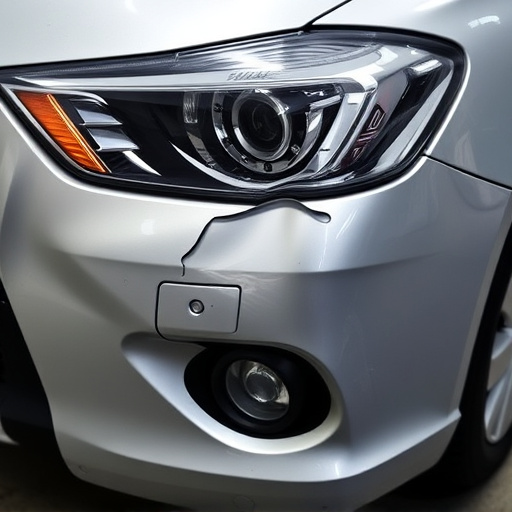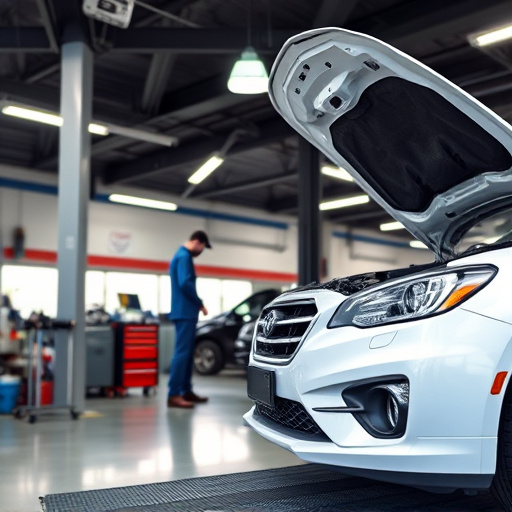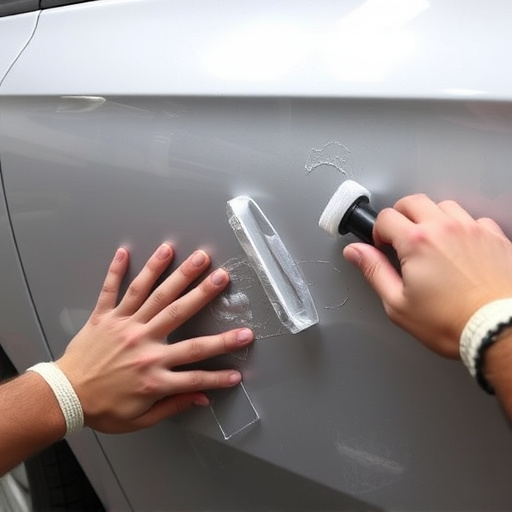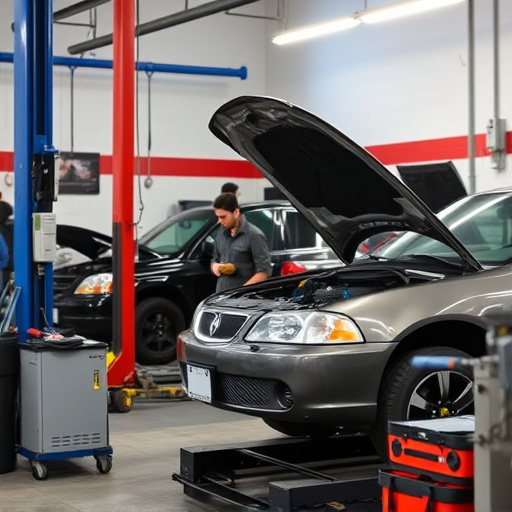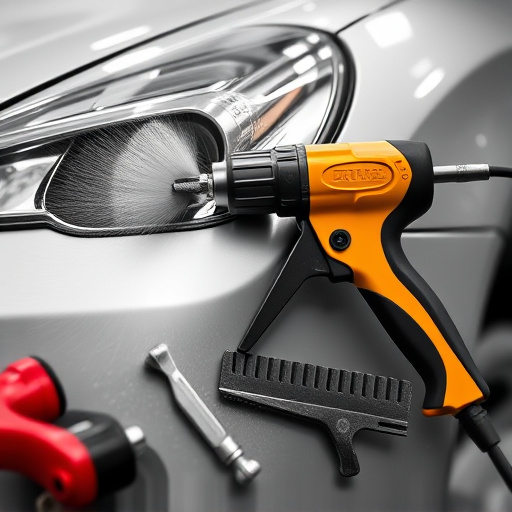Mercedes Active Brake Calibration (MAC) is a critical safety feature for Mercedes-Benz vehicles, preventing accidents and reducing collision repair costs. A flickering or persistent warning light indicates the need for calibration by skilled technicians who use tools to diagnose and adjust settings, ensuring optimal brake effectiveness and vehicle safety. Timely action is vital; mechanics access error codes to identify issues like sensor malfunctions or software glitches, leading to precise adjustments or replacements. Correct MAC calibration enhances safety and performance, fine-tuning the anti-lock braking system (ABS) for quicker response times and improved stopping power, preventing future accidents.
Mercedes Active Brake Calibration is a cutting-edge technology that ensures optimal braking performance and enhances vehicle safety. This innovative system includes self-learning algorithms that adjust brake parameters based on driving conditions, improving stopping efficiency. However, warning lights can indicate issues requiring attention.
This article delves into understanding the Mercedes Active Brake Calibration process, diagnosing warning light problems, and restoring seamless brake functions for enhanced driver confidence.
- Understanding Mercedes Active Brake Calibration
- Diagnosing System Warning Light Issues
- Restoring Optimal Brake Performance and Safety
Understanding Mercedes Active Brake Calibration

Mercedes Active Brake Calibration (MAC) is a sophisticated system designed to enhance vehicle safety and performance. It plays a crucial role in modern cars by providing advanced braking capabilities, particularly in emergency situations. This technology adjusts and calibrates the braking response, ensuring optimal performance under various driving conditions. MAC continuously learns from driving patterns and adapts to different road environments, making it an integral part of Mercedes-Benz’s commitment to safety.
When issues arise with this critical system, such as a flickering or persistent warning light, it signals a need for attention. Proper calibration is essential for maintaining the effectiveness of the brakes, preventing potential car collision repair scenarios, and ensuring the overall well-being of the vehicle. Skilled technicians employ specialized tools to diagnose and fine-tune the MAC, restoring its optimal functioning and safeguarding both drivers and passengers, as well as preserving the aesthetic and structural integrity of the car body during the process of automotive repair.
Diagnosing System Warning Light Issues
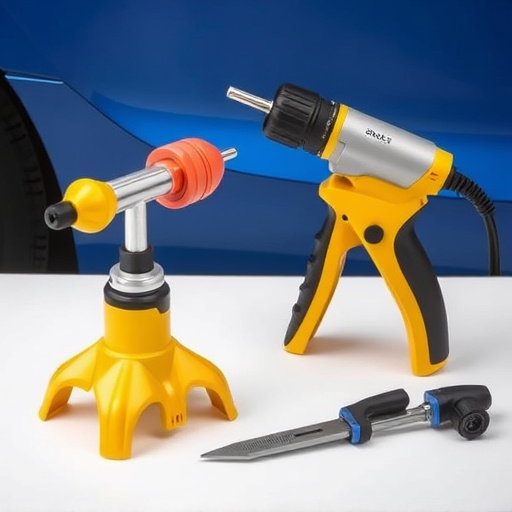
When a Mercedes Active Brake Calibration issue causes the system warning light to flicker or stay on, it’s crucial to address it promptly. The first step in diagnosing the problem involves checking for any error codes stored in the vehicle’s computer. Mechanics skilled in car repair services can use specialized tools to retrieve these codes, which often provide clues about the malfunction.
Common causes range from sensor malfunctions and faulty wiring to software glitches that require expert automotive repair services. By accurately identifying the root cause, technicians can perform the necessary adjustments or replacements, such as calibrating the active brake system again, ensuring optimal performance and safety for your vehicle.
Restoring Optimal Brake Performance and Safety
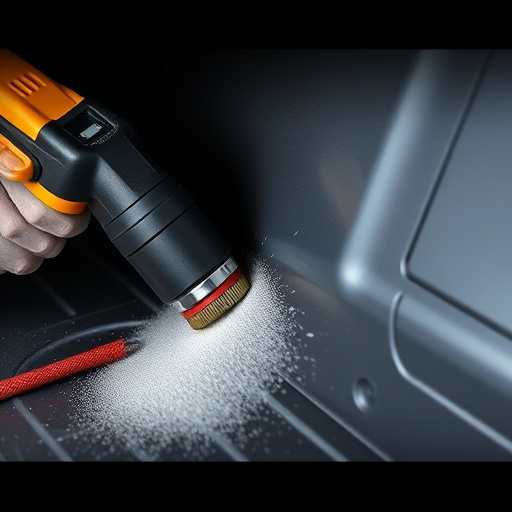
When a Mercedes Active Brake Calibration is performed by a trusted auto body shop or car body shop, it’s not just about fixing a warning light on your dashboard—it’s about restoring optimal brake performance and safety features that are crucial for your peace of mind while driving. This precise calibration ensures that the anti-lock braking system (ABS) functions at its highest level, enabling quicker response times and more effective stopping power in various road conditions.
In many cases, an issue with a Mercedes Active Brake Calibration can lead to reduced braking efficiency or even erratic behavior from the ABS. Auto body repairs focusing on this calibration not only resolve these problems but also help prevent future accidents by maintaining consistent and reliable brake performance. This is especially important given that modern vehicles’ sophisticated safety systems heavily rely on accurate sensor readings and precise control mechanisms, all of which are fine-tuned during a successful active brake calibration process.
Mercedes Active Brake Calibration (ABC) is a critical system for maintaining optimal brake performance and ensuring driver safety. By calibrating this advanced technology, owners can restore not only the efficiency of their brakes but also the functionality of the system’s warning light indicators. With accurate diagnosis and prompt action, folks can prevent potential issues and revolutionize their driving experience, fostering confidence on the road.

